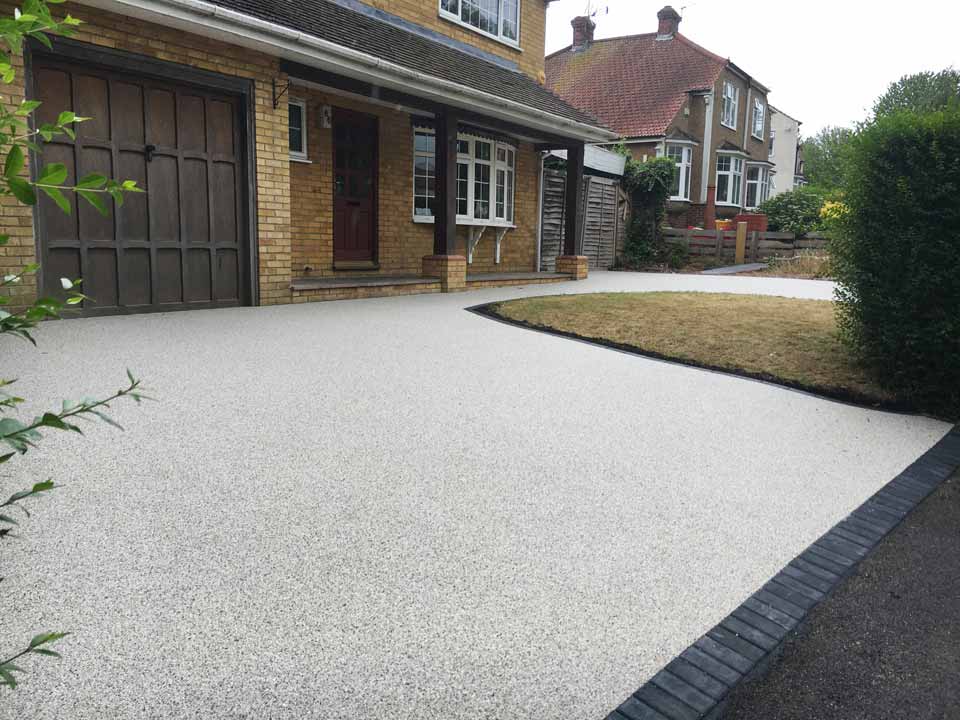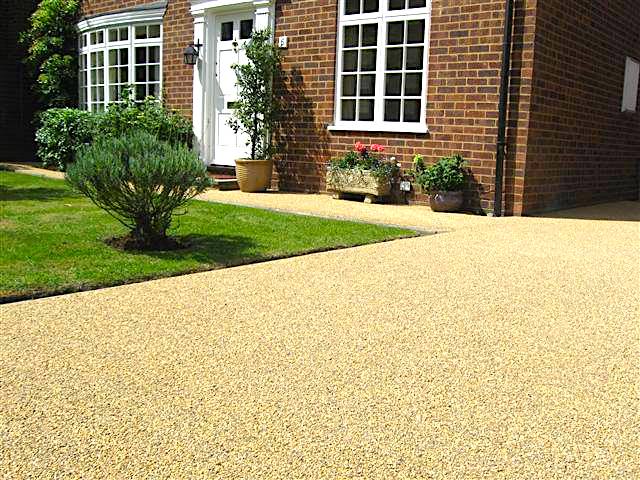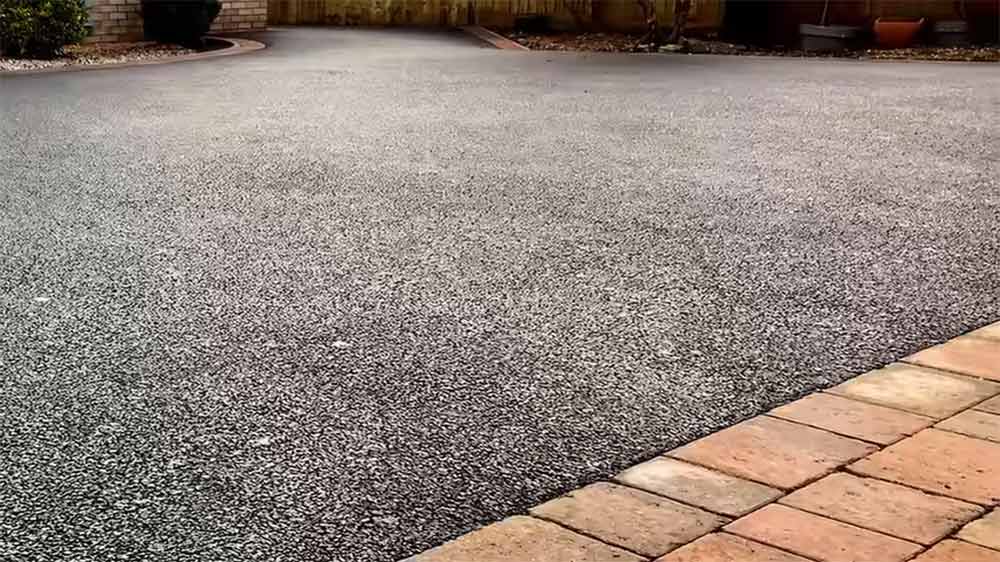
Resin driveways, also known as resin surfacing or resin-bound driveways, have become increasingly popular among homeowners in the UK. The smooth and seamless finish they offer is both aesthetically pleasing and functional. However, one important factor to consider when installing a resin driveway is the need for a solid base.
When it comes to choosing a base for your resin driveway, there are two common options: porous concrete and tarmac/asphalt. Porous concrete is suitable for both new bases and existing concrete bases that have been thoroughly cleaned. On the other hand, tarmac or asphalt can provide a stable base when laid on a suitable sub-base like MOT type 3.
It’s worth noting that block paving, brick paving, and paving slabs are not suitable base options for resin driveways. Their uneven nature and potential for movement and cracking make them unsuitable for the seamless finish that resin driveways offer.
In addition to providing stability, the base of a resin driveway must also comply with Sustainable Urban Drainage System (SUDS) regulations. This means it should be able to handle water drainage effectively. A specialist blend of porous concrete or open grade laid over Type 3 MOT aggregate can help achieve SUDS compliance.
Having a solid base is crucial for the successful installation and longevity of your resin driveway. Classic Stone Driveways, a reputable UK-based company, offers expert advice and quality installations for resin driveways. Visit their website at classicstonedriveways.co.uk to learn more about their services.
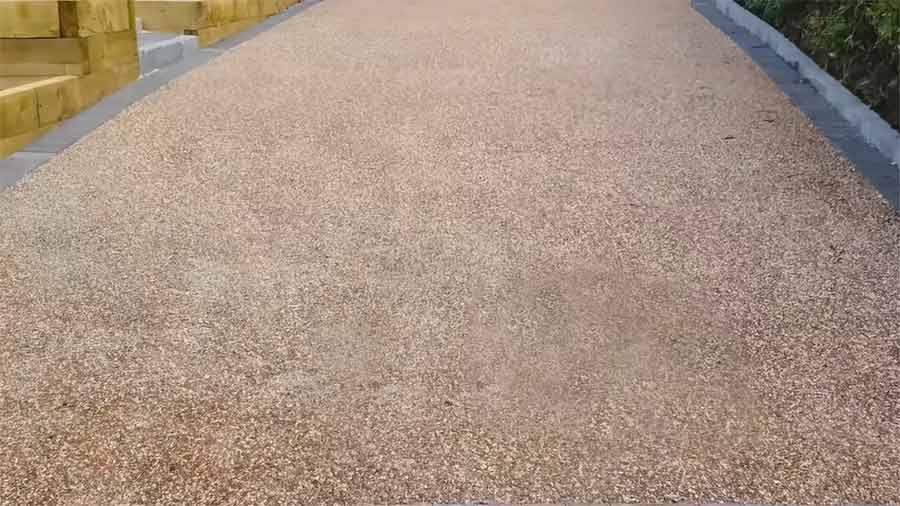
Table of Contents
ToggleWhat Can You Lay Resin Bound On To?
Resin bound surfacing offers a versatile solution for creating beautiful and durable driveways. It can be laid on various existing surfaces, including concrete, tarmac, and paving, providing a seamless and elegant finish to your outdoor space.
When it comes to concrete surfaces, it is recommended to prime the surface with a resin-bound primer before the application of resin bound material. This ensures optimal adhesion and a long-lasting result.
Tarmac is one of the most popular bases for resin driveways, and for good reason. It offers excellent flexural strength and permeability, providing a solid foundation for the resin bound system. Its smooth surface enhances the overall look and feel of the driveway.
However, not all bases are suitable for resin bound systems. Paving type products such as block paving, sets, and flags should be avoided. They can lead to cracking and failure of the resin system due to their uneven nature and potential for movement.
It’s worth mentioning that resin bound systems cannot be laid on a granular sub-base like MOT Type 1 or gravel. Proper preparation and cleaning of the base are crucial for a successful resin bound installation. Ensuring a stable and well-prepared base is key to achieving a beautiful and long-lasting resin driveway.
For more information and professional assistance in laying resin-bound driveways, consult the experts at Classic Stone Driveways. With their expertise and quality craftsmanship, you can create a stunning resin driveway that enhances the beauty and functionality of your home.
| Laying Surface | Suitability |
|---|---|
| Concrete | Can be used with a resin-bound primer |
| Tarmac | Highly suitable, provides a solid foundation |
| Paving (block paving, sets, flags) | Not suitable, can result in cracking and failure |
| Granular sub-base (MOT Type 1, gravel) | Not suitable, requires stable and well-prepared base |
Is a Concrete Base Necessary for a Resin Driveway?
When it comes to installing a resin driveway, homeowners often wonder if a concrete base is necessary. The answer is, it depends. While a concrete base is not required for every resin driveway, it can be a suitable option in certain cases.
Concrete bases offer stability and durability, making them ideal for areas with heavier loads or high traffic. If you anticipate regular vehicle use or have commercial requirements, a concrete base can provide the necessary strength and longevity for your resin driveway.
Before applying a resin driveway on a concrete base, there are a few considerations to keep in mind. Firstly, the concrete should be fully cured, which typically takes at least 28 days. This ensures that the base is solid and capable of supporting the resin surface.
Additionally, it is crucial to monitor the moisture levels on the concrete surface. Resin manufacturers generally provide guidelines regarding acceptable moisture content. Adhering to these guidelines is essential for proper resin adhesion and preventing any issues in the future.
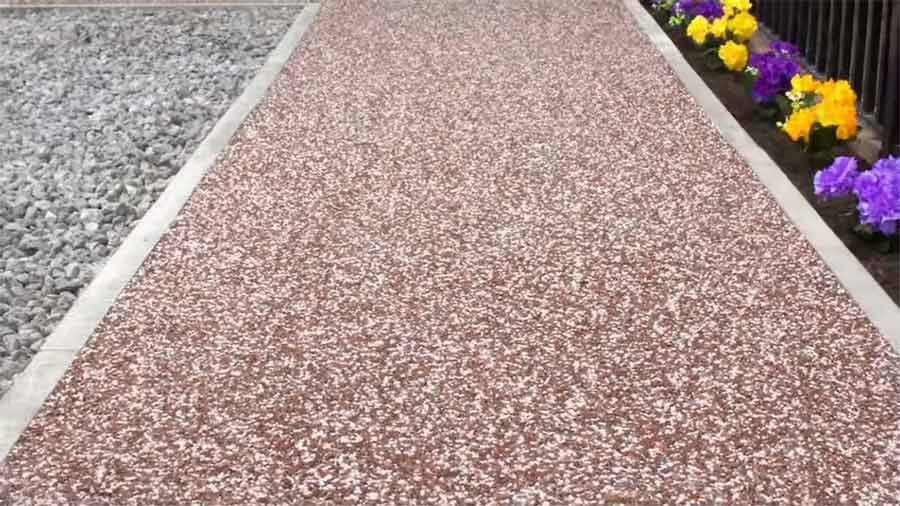
Using a resin-bound primer to prime the concrete surface is recommended before the resin application.
This primer promotes better adhesion between the resin and the base, ensuring a strong bond and improving the overall durability of the driveway.
To determine if a concrete base is necessary for your resin driveway, consult with a reputable resin manufacturer or supplier.
They can provide expert guidance based on your specific requirements and conditions.
Benefits of a Concrete Base for Resin Driveways:
- Stability and durability
- Suitable for heavy loads and high-traffic areas
- Promotes proper adhesion of the resin
- Improved longevity and resistance to wear and tear
Considering the advantages that a concrete base can offer, it is worth exploring this option when planning a resin driveway installation. However, it’s important to note that each project is unique, and consulting with professionals is key to making an informed decision.
Conclusion
When it comes to installing a resin driveway, having a solid base is crucial. The most common options for a resin driveway base are porous concrete and tarmac/asphalt. Porous concrete is suitable for both new bases and existing concrete bases that have been properly cleaned. It provides a stable foundation and allows for proper water drainage, ensuring compliance with Sustainable Urban Drainage Systems (SUDS).
Tarmac or asphalt, on the other hand, offers strength and stability, making it a popular choice for resin driveways. It provides a solid base that can withstand heavy loads and high traffic. However, it’s important to note that block paving, brick paving, and paving slabs are not suitable as a base for resin driveways. They can lead to uneven surfaces and potential cracking.
When deciding on the base for your resin driveway, it’s always recommended to consult with a reputable resin driveway supplier like Classic Stone Driveways (https://classicstonedriveways.co.uk/). They can provide expert advice and recommendations based on your specific requirements and the expected load and traffic on your driveway. With a proper base and professional installation, a resin driveway can offer a durable and low-maintenance solution for UK homes.
Would your property benefit from a new, state of the art resin drive in Manchester? Contact us for a no obligation quote on 0161 917 2477 / 07990 967423 or visit our website.
Whilst it is true that there are certain conditions required in order to lay a resin bound stone patio, pathway Read more
If your driveway is looking old and tired, a new one can help revamp your property. Modern driveways are available Read more
APPROVED RESIN BOUND DRIVEWAY INSTALLERS LOCAL TO YOU! Find out More Get in Touch Get a Free Quote Book an Read more


